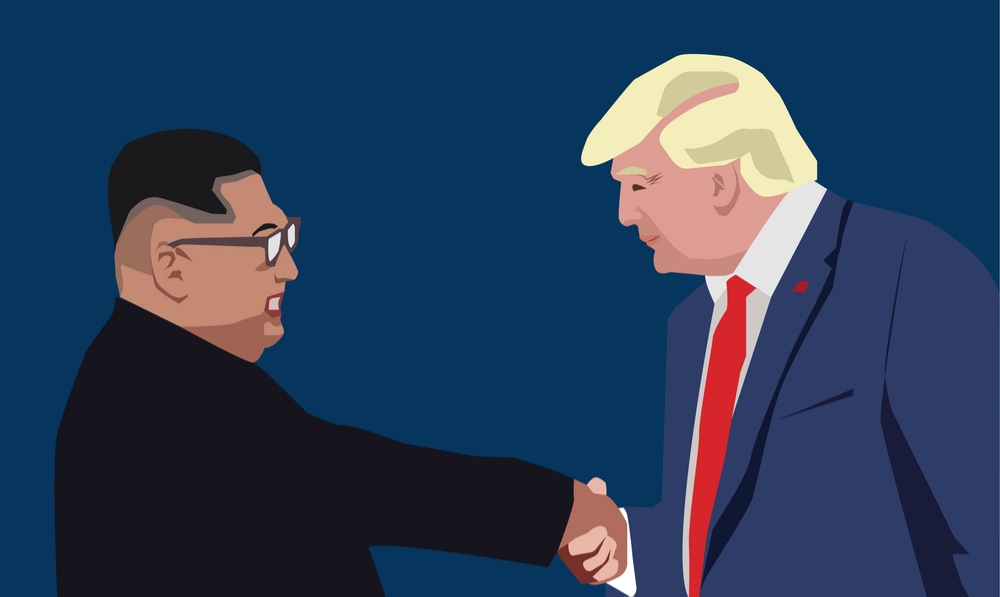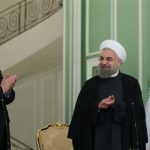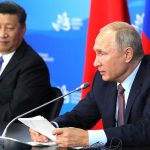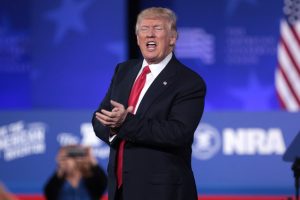by John Feffer
The second meeting between Donald Trump and Kim Jong-Un is scheduled for next month. The most likely location will be Vietnam. The agenda is much the same as before: how to get North Korea to denuclearize and the United States to dismantle its sanctions regime. The question remains: which side will make the first substantial move?
The summit comes at a particular difficult time for Trump. The partial shutdown of the federal government is nearing the end of its third week, and most Americans blame the president. Pentagon chief James Mattis resigned over Trump’s insistence on withdrawing U.S. troops from Syria, a policy that other administration officials have attempted to reverse. The president faces fresh criticism of his relationship with Russian President Vladimir Putin. And the House of Representatives, now in the hands of the opposition Democratic Party, is getting ready to launch a slew of investigations into Trump’s affairs and policies.
Kim Jong Un, on the other hand, has been busy consolidating his position. He visited China for the fourth time this month and began making arrangements for Chinese leader Xi Jinping’s first visit to North Korea this spring. Relations with the South are proceeding more-or-less smoothly, with the groundbreaking ceremony for a new inter-Korean railroad taking place late last year.
In his annual New Year’s speech, Kim confidently spoke of his country’s ability to defend against any military attacks but spent the bulk of his speech identifying the economic advances the country has made and the challenges that remain. He did not project the image of a man in a corner. Rather, he appeared to be a man with options. He could keep his nukes or dismantle them. He could negotiate with the United State or not. He could fall back on China’s support if necessary.
A politically weak Trump and more confident Kim could be the best possible combination for a successful summit. Trump is desperate to demonstrate that he can successfully negotiate with someone, anyone. He is acutely aware of the criticism, particularly at home, generated by the first summit in Singapore. He wants to silence his critics with a grand foreign policy gesture.
Kim, meanwhile, has the backing of Beijing and the prospects of moving forward quickly on the economic front with South Korea. He may well be in the mood to compromise.
Trump has already been hit with preemptive criticism for his plan to meet Kim again in a second summit. “Trump has a history of making one-sided foreign policy moves without getting anything in return,” USA Today’s editorial board, for instance, complained. “What would Trump give Kim to preserve the appearance of diplomatic progress? Kim’s long-sought dream of a formal end to the Korean War, granting him legitimacy as leader of the north? Withdrawal of U.S. troops from South Korea?”
In The Washington Post, meanwhile, former Pentagon official Van Jackson argues that diplomacy has so far made no headway in addressing North Korea’s nuclear weapons program. He worries about four possible negative outcomes from a second summit. There might be no diplomatic progress. North Korea could be stalling as a tactic to advance its missile program, Trump might suffer a global embarrassment if the summit flops. Or Kim might maneuver Trump into making a unilateral concession like withdrawing U.S. troops from South Korea.
It’s easy to criticize diplomacy. When it does succeed, it’s only after months or years of minimal if any progress.
It’s also easy to criticize summits. They are often just for show.
Finally, it’s very easy to criticize Donald Trump. He shows little knowledge of or interest in foreign affairs. He believes that he alone can solve complex problems. And he is, above all, capricious in his behavior. He will change his positions from one hour to the next.
So, in the lead-up to the second Kim-Trump summit, expect even more negative press and critical commentary. It’s not just pundits. The Democratic Party savaged Trump after the Singapore summit. It’s a good bet that the opposition, now that it’s in charge of the House, will be tempted to use a meeting between the president and yet another autocrat to score some political points.
Here’s why I’m not so pessimistic about a second summit.
First of all, it would keep Trump engaged on the issue of Korea and focused on negotiations rather than war. As long as the U.S. president believes that he has a good friend in Pyongyang, he’s not as likely to make rash threats against North Korea or act on them.
Also, even though negotiations on North Korea’s nuclear program have not advanced, they are still in play. The situation right now is better than the “strategic patience” that the Obama administration adopted for most of its two terms – which amounted to ignoring North Korea and hoping that it would unilaterally change its policies. A summit may only sustain the illusion that negotiations are creeping forward. But even such an illusion is beneficial in light of the alternatives: a hostile standoff or an actual war.
A summit provides cover for inter-Korean rapprochement to continue. That’s why South Korean President Moon Jae-in is enthusiastic about such spectacles. When Trump shakes Kim’s hand, it sends a strong message that it’s perfectly okay for Seoul and Pyongyang to work together as well.
Finally, a summit offers an occasion for Trump to do something radically different. Most American pundits fear that the president will do something rash, as he has done by announcing a U.S. military withdrawal from Syria. I, for one, would welcome something similarly rash from Trump on Korea.
So far, U.S.-North Korean negotiations have stalled because North Korea has a single bargaining chip that it is reluctant to give up and the United States refuses to embrace the approach of step-by-step concessions. Somebody has to break this deadlock. As the much stronger party in the negotiations, the United States should be the one to shift its position and offer the first concession.
In other words, I support a second summit for the very same reason that the prospective meeting worries so many U.S. pundits. I welcome the possibility that Donald Trump will do something rash.
Donald Trump is a president who makes a great many stupid, aggressive, and destabilizing policy moves at home and abroad. Let’s hope that next month he does something rash for peace instead.
Reprinted, with permission, from Hankyoreh.






Denuclearization of the Korean Peninsula would be a complex, multi year process. What is needed now is for the two sides to commit not to launch nuclear weapons at each other. Regrettably the trust is not there for either side to make such a commitment. Therefore what we need to see is President Trump offering trust-building confidence building measures-CBM. But JB wouldn’t stand still for that, would he?
If the world lets, Koreans could do the work and go in unification path, but this is something that UK-US axis (not him!) doesn’t like. And he is not the one who decides but he is only the showman of his side, who is tasked to give the opposite impression to the world to make them feel fear from a seemingly unstable person who decides on his own instincts. This show is for public not the seasoned authors!